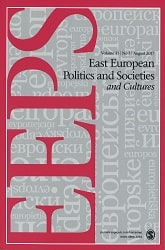Encouraging Effective Democratic Competition
Encouraging Effective Democratic Competition
Author(s): Anna Grzymała-BusseSubject(s): Governance, Government/Political systems, Political behavior, Corruption - Transparency - Anti-Corruption
Published by: SAGE Publications Ltd
Keywords: corruption; governance; competition; political parties;
Summary/Abstract: Political party competition is critical to fostering good governance and preventing corruption. However, several aspects of competition—the number of parties, their vote share, or their specific ideology—have no demonstrable impact on corruption. In contrast, the robustness of competition is critical in constraining governments and monitoring policy. Parties have to clearly profile themselves, be credible coalition partners, and prioritize parliamentary monitoring above building organizations. Above all, political party competition must be inclusive: no party should be excluded a priori from governance or coalitions because of their ideology or the identity of the constituency they represent. This is especially the case in new democracies, where capable and stable competitors are in short supply. Consequently, former authoritarian parties need to be included: they have the greatest incentives to monitor the behavior of the new governing parties, and they often have the greatest capacity to do so.
Journal: East European Politics and Societies
- Issue Year: 21/2007
- Issue No: 01
- Page Range: 91-110
- Page Count: 20
- Language: English
- Content File-PDF

